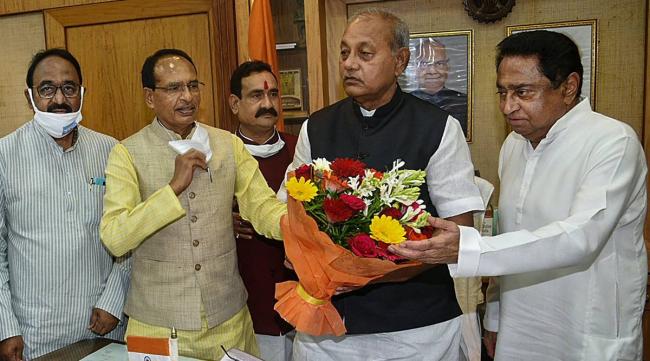MLAs Get Handbook With Banned Words in Parliament

The state Assembly issued this 38-page booklet on the eve of the four-day monsoon session, which contains a variety of unparliamentary terms, phrases, and sentences - primarily in Hindi.
Hyderabad: MLAs must avoid using 'unparliamentary' phrases during House proceedings, according to a 38-page booklet issued by the MP Assembly. As a result, terms like 'pappu,' 'tanashah' (dictator), 'dhongi' (hypocrite), 'nikamma' (worthless), 'chor' (thief), 'gunde' (goons), and 'bhrasht' (corrupt) must be avoided. The booklet lists the terms and sentences that were removed from the Assembly between 1954 and 2021.
When an MLA rises up to speak in the Madhya Pradesh Assembly, he or she may now simply refer to a booklet that lists words, phrases, and sentences that should be avoided during House proceedings to avoid having their statements expunged.
The state Assembly issued this 38-page booklet on the eve of the four-day monsoon session, which contains several unparliamentary terms, phrases, and sentences — primarily in Hindi.
The collection contains 1,161 words and sentences that have been expunged from the Vidhan Sabha's records since 1954.
Members are not allowed to use words like "Pappu" or "Mr. Bantadhar," according to the list. BJP supporters are known to refer to Congress leader Rahul Gandhi as "Pappu," while veteran Congressman and Rajya Sabha member Digvijaya Singh is referred to as "Mr. Bantadhar" (spoilsport).
Aside from that, it includes terms like jhooth bolna (to lie), vyabhichar Karna (to be worthless), chor (thief), bhrasht (corrupt), Tanashah (dictator), gunde (goons), and dhongi (hypocrite) vyabhichar Karna (to indulge in adultery). It also cites the term "sasur" (father-in-law), which was first used in the House on September 9, 1954, but was later removed from the records.
The booklet lists the terms and sentences that were removed from the Assembly from 1954 to 2021, except for the years 1990 to 2014.
Chief Minister Shivraj Singh Chouhan, state Congress chief Kamal Nath, Parliamentary Affairs Minister Narottam Mishra, and Assembly Speaker Girish Gautam launched it on Sunday at the Vidhan Sabha Bhavan.
An Assembly official stated, "The booklet will be given to the Assembly members on Monday, before the session begins, so that they know which terms should be avoided in the House."
Chouhan spoke on the occasion, recalling the high standard of debates in Parliament and state legislatures, and saying, "Many a time it happened that the person speaking in these houses in a flow forgets about not using specific unparliamentary words." He praised the Assembly for publishing the book, saying it would aid members in better understanding the issue.
The chief minister further stated that a group of students who came to see the Vidhan Sabha once informed him that the loud events made them feel like they were standing in a fish market after observing the proceedings of the House.
Both the Lok Sabha and the Vidhan Sabha, according to Kamal Nath, are considered democratic temples.
"What was the need for a book on unparliamentary words and sentences in the first place?" he inquired.
Speaker Girish Gautam stated that any words or sentences that had been deleted since the beginning had been included in the publication for the members' awareness.
"The facility of retakes in life is available to actors, and not to leaders," he added, advising them to speak cautiously in public forums.
The choice to publish this book, according to Gautam, will be vindicated the day the speaker does not have to delete any words or sentences during House proceedings.
The records from 1990 to 2014 were not available for some reason, according to A P Singh, the state Assembly's senior secretary, and so they were not included in this publication.
He went on to say, "It will be incorporated in the second edition of the publication whenever it will be released."
The Congress was in power in Madhya Pradesh from 1993 to 2003, while the BJP was in power from 2003 to 2018.





